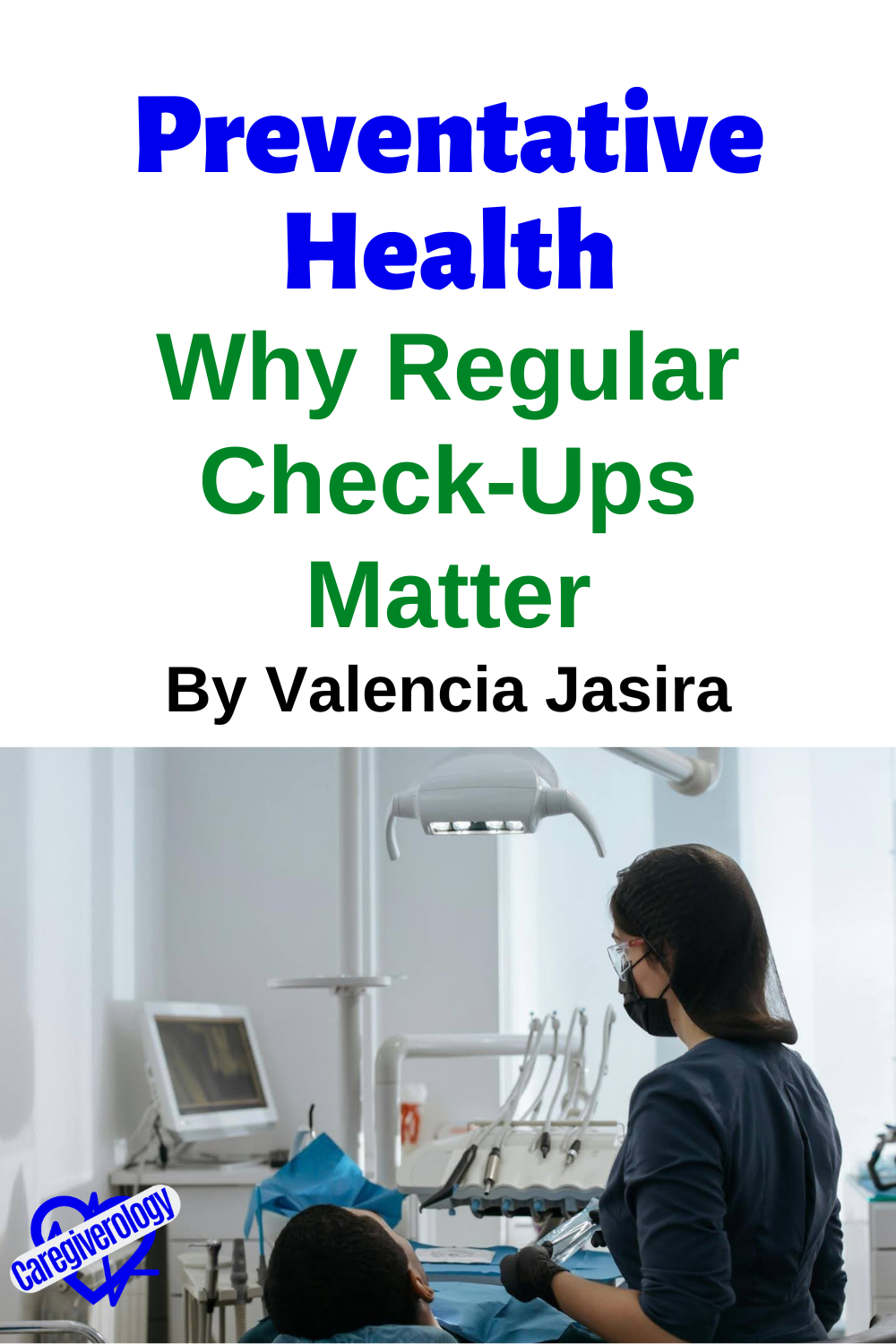Preventative Health: Why Regular Check-Ups Matter

Regular check-ups are a vital part of staying healthy and preventing serious illnesses. By visiting your doctor regularly, you can catch potential health problems early, manage existing conditions, and receive personalized advice to maintain a healthy lifestyle. This blog explores why regular check-ups matter and how they can help you lead a healthier, more fulfilling life. From early disease detection to cost savings in healthcare, we'll cover the key benefits of preventative healthcare. Prioritizing regular check-ups can make a significant difference in your overall well-being. Let’s learn more about the importance of these routine visits.
Cost Savings in Healthcare
Preventative care, including regular check-ups, can lead to significant cost savings in healthcare. Detecting and treating health issues early often results in less expensive and less invasive treatments. For example, managing high blood pressure through lifestyle changes and medication is far more cost-effective than treating a heart attack or stroke. Regular check-ups also help avoid emergency room visits and hospitalizations, which can be costly. By investing in preventative care, you not only improve your health but also reduce your long-term healthcare expenses. The financial benefits of regular check-ups extend beyond individual savings, contributing to a more efficient and cost-effective healthcare system overall. For those interested in understanding the broader impact of healthcare management, pursuing a health science bachelor degree can provide valuable insights into the economics of healthcare and preventative strategies.
Early Detection of Diseases
Early detection of diseases is one of the most significant benefits of regular check-ups. When you visit your doctor regularly, they can perform routine tests and screenings to catch potential health issues before they become serious. Conditions like hypertension, diabetes, and certain cancers often do not show symptoms in their early stages. Regular check-ups can identify these conditions through blood tests, physical exams, and other diagnostic tools. Catching diseases early means treatment can begin sooner, often leading to better outcomes. For example, early cancer detection can significantly increase the chances of successful treatment and recovery. Regular check-ups provide a proactive approach to health, allowing you to address issues before they escalate.
Monitoring Chronic Conditions
For those already diagnosed with chronic conditions, regular check-ups are crucial. Chronic diseases need to be managed regularly in order to prevent complications and maintain quality of life. Regular visits to your healthcare provider allow for continuous monitoring of these conditions. Your doctor can track the progression of the disease, adjust medications, and recommend lifestyle changes as needed. This consistent oversight helps keep your condition stable and prevents it from worsening. It also allows you to discuss new symptoms or concerns, ensuring that your treatment plan remains effective. Managing chronic conditions is a dynamic process, and regular check-ups are key.
Preventing Health Complications
Regular check-ups play a critical role in preventing health complications. Many health issues can lead to severe complications if not addressed early. Your doctor can perform necessary screenings and tests during a check-up to catch these risk factors early. They can also guide lifestyle changes and treatments to mitigate these risks. By taking preventative measures through regular check-ups, you can avoid many complications associated with chronic diseases and maintain better overall health.
Building a Relationship with Your Doctor
Building a strong relationship with your doctor is another important aspect of regular check-ups. When you consistently see the same healthcare provider, they become familiar with your medical history, lifestyle, and specific health needs. This familiarity allows for more personalized and effective care. A strong doctor-patient relationship also fosters better communication and trust. You are more likely to share concerns and follow medical advice when you feel comfortable with your doctor. Regular check-ups provide the time and opportunity to build this relationship, ensuring your healthcare provider is a reliable partner in your health journey.
Keeping Vaccinations Up to Date
Vaccinations help in protecting you from various infectious diseases. Regular check-ups are an ideal time to ensure your vaccinations are up to date. Vaccines such as the flu shot, tetanus booster, and vaccines for diseases like measles, mumps, and rubella are typically administered during routine visits. Staying current with vaccinations protects you and helps prevent the spread of infectious diseases within the community. Your doctor can also recommend additional vaccines based on age, health status, and lifestyle. Keeping up with your vaccinations is a simple yet effective way to maintain your health and prevent serious illnesses.
Maintaining a Healthy Lifestyle
Regular check-ups play a significant role in maintaining a healthy lifestyle. During these visits, your doctor can offer personalized advice on diet, exercise, and other lifestyle factors that impact your health. For instance, they can help you create a balanced meal plan, recommend physical activities that suit your fitness level, and advise quitting unhealthy habits like smoking or excessive alcohol consumption. Discussing your lifestyle choices during check-ups gives you valuable insights and motivation to make positive changes. Your doctor can also provide resources, such as referrals to dietitians or fitness programs, to support your health goals. This ongoing guidance helps you stay on track and maintain a healthy lifestyle.
Mental Health Monitoring
Mental health is an integral part of overall well-being, and regular check-ups provide an opportunity to address it. Many people hesitate to discuss mental health issues, but routine visits to your doctor create a safe space to talk about stress, anxiety, depression, or other mental health concerns. Your healthcare provider can perform mental health screenings and offer support or referrals to mental health professionals if needed. Early intervention is key in managing mental health conditions effectively. By incorporating mental health monitoring into regular check-ups, you ensure that your mental and emotional well-being receives the attention it deserves, leading to a more balanced and healthy life.
Health Screenings and Tests
Health screenings and tests are crucial components of preventative care. During regular check-ups, your doctor can perform various screenings based on age, gender, and medical history. These might include blood pressure checks, cholesterol tests, mammograms, Pap smears, colonoscopies, and bone density tests. Regular screenings help detect potential health issues before they become serious. For example, a routine blood pressure check can identify hypertension, allowing for early intervention to prevent heart disease or stroke. By staying up-to-date with recommended screenings, you take a proactive approach to your health, ensuring early detection and treatment of potential problems.
Conclusion
Regular check-ups offer numerous benefits that contribute to overall well-being. They help maintain a healthy lifestyle, monitor mental health, provide necessary health screenings, offer personalized health advice, and result in cost savings. By prioritizing regular visits to your healthcare provider, you take a proactive approach to your health, ensuring early detection and treatment of potential issues. This enhances your quality of life and reduces the risk of serious health problems in the future. Embrace the habit of regular check-ups to stay informed, supported, and in control of your health journey. Your well-being is worth the investment.
Thank you Valencia Jasira for contributing this article.
Guest Articles Written for Caregiverology
From Preventative Health: Why Regular Check-Ups Matter to Home
Recent Articles
-
Common Truck Crash Injuries and Legal Remedies - Caregiverology
Jul 19, 25 10:49 AM
Known for its sun-drenched beaches, vibrant arts scene, and bustling maritime industry, Fort Lauderdale is a city that sees heavy traffic both on its roads and at its busy port. Unfortunately, with th… -
Why Expert Legal Help Matters After Serious Injury - Caregiverology
Jul 19, 25 10:35 AM
In Houston, over 67,600 car crashes occurred in 2023, resulting in 290 fatalities and 1,612 serious injuries. That’s roughly 185 accidents every day. -
How Life Care Planners Support Injury Recovery - Caregiverology
Jul 19, 25 10:18 AM
In Los Angeles, life care planners play a vital role in supporting injury recovery, especially for individuals facing catastrophic injuries such as traumatic brain injuries or spinal cord damage.





New! Comments
Have something to say about what you just read? Leave a comment in the box below.